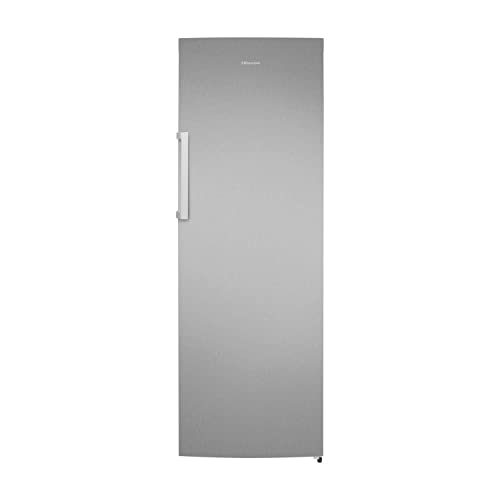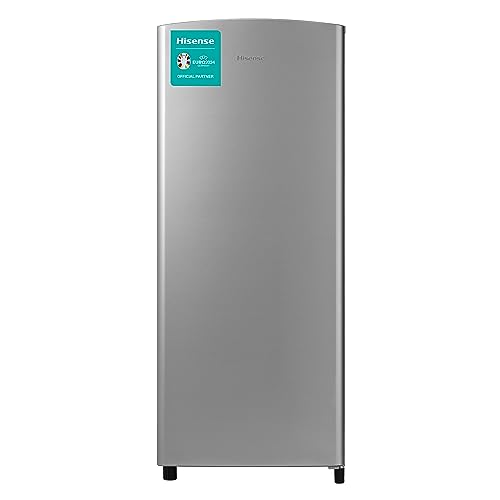
How to Keep Your Fridge Running Smoothly

Fridges are available in many different sizes and shapes. They can be fitted into small areas, like dorm rooms.
Some models are compatible with smart phones. They let you monitor your fridge from afar and help you fix any issues that may arise. You can also control them via voice commands.
Noise
Refrigerators emit a wide variety of sounds when they are in operation. Certain noises are more obvious than others. If you notice any of the below sounds identify the source and look for a quick fix prior to calling a repair service for your fridge.
Rattling
The fridge can rattle if there is not enough space between it and the cabinet or wall or if its sitting at an unlevel angle. This is easy to solve - all you have to do is ensure that there's at least a few inches of space between the sides, and adjust the legs of the fridge or leveling screws to raise or lower it accordingly.
Hissing
When the compressor is cooling your food, it can make a hissing sound. This is a normal sound that is caused by the refrigerant or compressor fluid moving through the system. If you're concerned, time how often the compressor cycles and call a fridge repair service immediately in the event that it occurs more frequently than normal.
Squeaking
The refrigerator may sound loud when their fans or coils are dirty. If you notice your
Fridge Containers making squeaking sounds, clean the coils or fan using a vacuum using a brush attachment, a rag and water, or use dish soap and water. It's important to do this every two years or more frequently when your fridge is old or frequently used.
Clicking
A clicking sound may also be heard from a refrigerator. It is usually caused by freezing around the fan of the freezer. Manual defrosting can solve the problem, but it will return in the event that a professional is not called in.
If you hear clicking, turn the fridge back on. If you have an ice maker installed to your fridge, this sound could be caused by it. Make sure you turn it off when aren't using ice regularly.
The hum from your fridge is normal, but it can be a bit louder at certain periods of the day or after large stockings or intensive freezing operations. This is due to the fact that the refrigerator has to perform more efficiently and faster to keep your food cool however it isn't necessarily a sign of trouble with the fridge or its performance.
Dust
Household dust attracts dirt bacteria and other microorganisms, as well as traces from daily exposures to chemicals in the home. The tiny particles can trigger allergic reactions and respiratory irritation, and they are a perfect substrate for microbes, which includes those that may cause an infection when they come into contact with a cut.
It's impossible to clean a fridge completely however, regular cleaning can reduce the accumulation of dust and help keep the temperature consistent. A dirty fridge also consumes energy because it overheats and operates inefficiently. If you suspect that your refrigerator is making louder noises than normal, or is wasting power by overworking itself is it time to call the experts.
In contrast to other airborne particles, dust doesn't just come in from the outside as is often believed. It contains resuspended dirt from the house which could be contaminated by lead or other toxicants. It also contains pollen, mold, and car exhaust. It also contains legacy pollutants like DDT, which was banned over 50 years ago.
Some compounds, like flame retardants such as decabromodiphenylether, volatilize into the air. However, the majority of chemicals in dust are derived from objects that are thrown off,
Fridge Containers such as electronic equipment. High-molecular-weight substances, such as surfactants used in cleaners and paint strippers, also migrate directly into dust.
Aside from contaminating the food in the refrigerator, a dirty fridge can also negatively affect your health. It could harbor allergens, such as pet dander, and the droppings of cockroaches which can trigger asthma and allergies for many people. It can also contain bacteria spores, like staphylococcus aureus, that can cause infections if they make their way into a wound.
Researchers have discovered that a wide range of health conditions are linked to dust pollution, ranging from cancer to cardiovascular disease to leukemia and inflammatory intestinal disease. A recent study showed that the homes of children with leukemia tended to have higher levels of polycyclic aromatic hydrocarbons PBDEs and PCBs in their dust than homes of healthy children.
Condenser Coils
If refrigerators are operating properly, the coils that are on the back and front of the appliance should dissipate the heat generated by the compressor. When these radiator-like components are covered in dust, pet hair or lint, the compressor has to work overtime trying cool the refrigerator, which wears down the appliance. It is important to clean your coils regularly.
Before starting, disconnect and turn off the refrigerator's power source. This will reduce the risk that you or your family members could be injured by electrocution while working on the appliance. It's also a good idea to wear a protective mask if you are sensitive to dust. You will then have to locate the coils. They are usually located at the rear of the fridge, or at the front across the base in some units. If you're unsure of where to find them check the owner's manual or contact the manufacturer for more details.
After you have located the coils, you will have to take off the access panel, if there's one. Then, alternate between vacuuming the coils using a narrow hose attachment and rubbing them with a condenser coil cleaning brush. It is essential to take your time when doing this to avoid bending or damaging the coils. After that, replace the kick panel or push the fridge back into position and plug it back in.
If you're not confident doing this yourself, then you can always employ a professional. But it's much cheaper and less trouble to simply keep up with the cleaning routine to prevent the problem from arising in the first place.
Maintenance
Refrigerators are powerful appliances that operate throughout the day to cool your food. To ensure they do their job effectively they require regular maintenance. This simple preventive maintenance will ensure that they are running efficiently for many years to come.
One simple thing to do is clean the door seals. Jelly and
Fridge Containers other sticky foods can cause a buildup and stop gaskets from sealing properly, allowing cool air to leak out of tiny openings. Every few months, wipe them down with a baking soda solution and warm water using the toothbrush or sponge.
Another place to check for issues is the fan in the back of the
american fridge. It can be noisy if it's been clogged by paper, insulation or even a mouse. Unplug the shelves, remove the shelves, the refrigerator and then remove any removable parts. Clean the coils and the area surrounding them with a vacuum cleaner with an attachment for a hose. Make sure you turn the fridge back on when you're done.
It is recommended that you read the owner's manual for details on where to find the coils, the fan and the tools to clean it with. It's recommended to read the warranty carefully, to be sure you know what is and isn't covered.